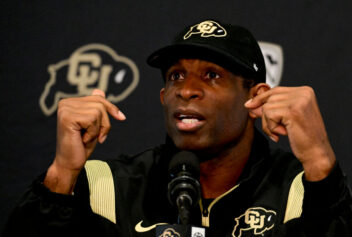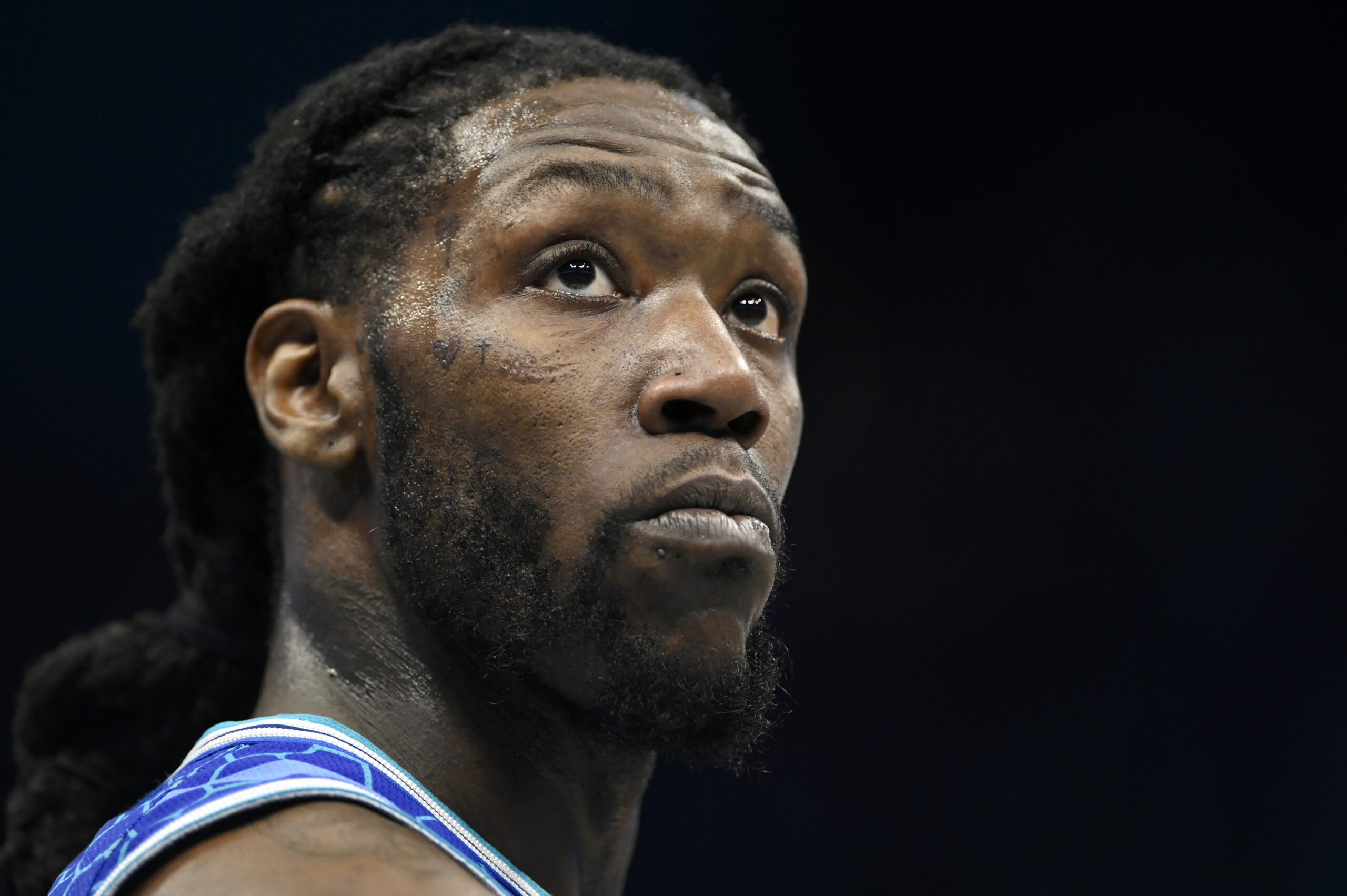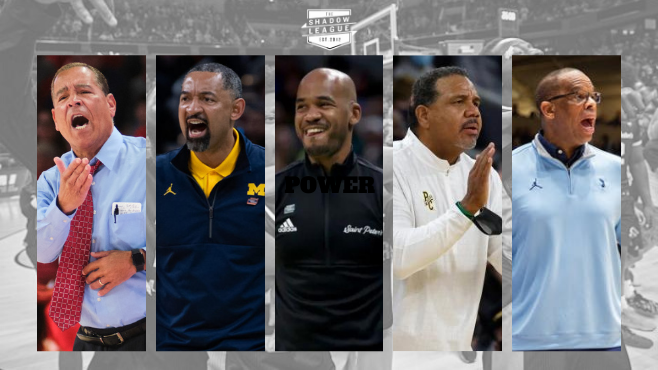The two styles on display in Monday night’s National Championship game couldn’t be more different from one another. Michigan’s offense is first nationally in efficiency, but Louisville counters with the nation’s most efficient defense.
Louisville attacks offenses like Tyson in his prime. This isn’t a rope-a-dope defense, content with forming a bubble around the arc with a matchup zone. No, they strike power punches with one of college basketball’s most turnover-happy full-court pressure schemes. Louisville’s man-pressure defense hounds the ball for 94 feet, but Michigan’s offense has already cracked college basketball’s most impregnable defenses. The Wolverines are in Atlanta as primed to play their parts as Buster Douglas in Japan.
Pitino’s rotation is comprised of a ragtag group of senior castaways that most Big East programs turned away before getting shipwrecked on Louisville’s shores. Their only first-round prospect, Gorgui Dieng, went scoreless in the Final Four. They don’t sweat it though, because defense has been their life raft to the championship game.
Michigan has a foursome that will each get a first-round sniff of the NBA Draft this summer. However, their ballyhooed backcourt, featuring the least-celebrated Wooden Award winner in recent memory, Trey Burke and Tim Hardaway Jr., can’t afford to have another repeat performance of Saturday. Michigan can’t win if they combine to shoot 5-for-24 from the field again.
Burke will have to protect the rock against Louisville, who rank second nationally in steals per game. It shouldn’t be a problem for the guard who has the nation’s top assist-turnover ratio. In the Final Four, Louisville starved for 25 minutes against Wichita State for a turnover, and as a result, had to stage their largest comeback of the tournament on the back of Kevin Love-lite, Luke Hancock. Louisville could have trouble trying to jack Michigan. The Wolverines surrendered the fewest turnovers in the nation this season.
In Louisville, they’ll be facing the second-best best kleptomaniac backcourt in the nation. Russ Smith and Peyton Siva like to swipe, but Michigan can take a few jabs. They already rolled over the most aggressive defensive backcourt in the nation when they dismantled VCU’s Havoc system.
However, Louisville has something VCU didn’t in the form of roaming 7´0 rim guardian Gorgui Dieng. Michigan will counter with Mitch McGary, who has protected his fair share of rims from attacking ball handlers during the Wolverines’ run.
He’s also got the wheels and agility to run the break with Michigan’s wings.

Dieng is a shotblocking magnet, but Michigan has already repelled Kansas’ bruising frontcourt.
The key for McGary will be staying on the court, and not getting lured into foul trouble when Smith inevitably comes barreling into the lane. McGary epitomizes the Jekyll and Hyde nature of Michigan’s two seasons.
The last time Michigan made a drastic switch right before the tourney began was 23 years ago when Athletic Director Bo Schembechler callously canned head coach Bill Frieder before the NCAA Tournament. After Frieder greased his departure from Ann Arbor by admitting that he’d be accepting the Arizona State job for the next season, Schembechler gave him a head start, and named assistant Steve Fisher as the interim head coach. Led by Glen Rice, the Wolverines won the 1989 national championship.
In McGary, Beilein found a man in the interior to complement their wings. Despite modern college hoops becoming more guard-oriented, teams with a frontcourt presence and low-post scorers have excelled in the tournament. No one could have predicted before the tournament that their backup forward would steal the tournament limelight from the National POY.
Up until McGary’s breakthrough, Michigan’s frontcourt consisted of 6´6 Glenn Robinson III and 6´8 Jordan Morgan.
Before the tournament began, Michigan’s title chances were viewed as a mirage because their defense was a sieve. Since 2003, you could eliminate anyone from your bracket ranked outside of the Top 20 in defensive efficiency from winning the national championship. It had never been done before in the era of recorded advanced statistics. Prior to the tournament, Michigan was ranked in the mid-forties. While their defensive execution has improved, they are still ranked 32nd in the nation. When you break down the metrics, Louisville fits the profile of a national championship squad.
The prevailing notion in college basketball is that defense wins championships, and that Louisville, the presumptive favorite for the past weeks, will be celebrating a national championship on Monday night. However, after dispatching the best defenses in college basketball en route to their showdown with the ministers of defense, conventional wisdom hasn’t been the norm in this tournament for Michigan. Why start now?



